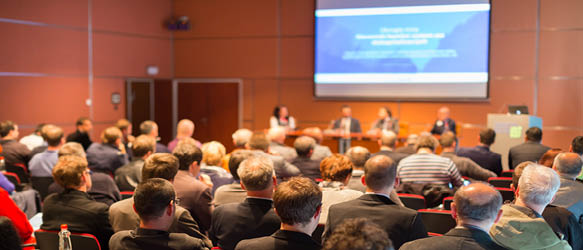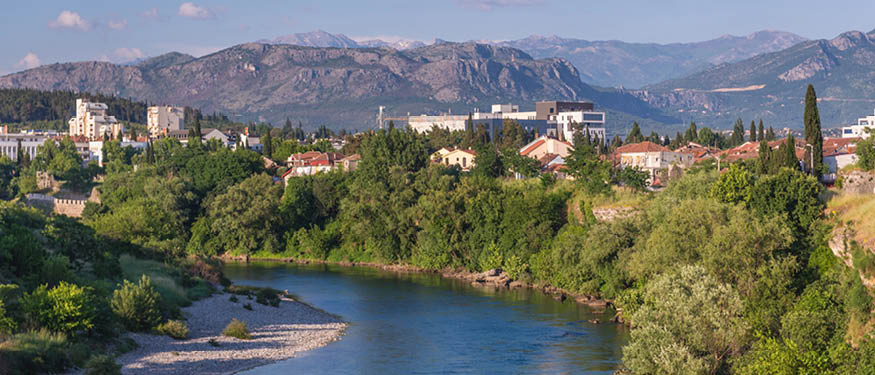Love them or hate them, conferences are a fundamental part of the successful commercial lawyer’s calendar. But time is precious. Those calendars are full. It’s vital for conference organizers to get them right, and critical for lawyers to choose wisely in determining which events to attend and which to skip.
The law firms from across CEE sponsoring the first-ever Dealer’s Choice International Law Firm Summit in London are, of course, highly successful. As such, their lawyers have attended dozens of successful conferences over the years … and a not insignificant number of wastes-of-time. As a result, they have strong opinions about what makes or breaks a law firm conference.
Sussing the Speakers and Assessing the Attendees
One aspect that everyone agrees is crucial to a successful event is the calibre of its speakers – and that they’re not too familiar. According to Okan Demirkan, Partner at Kolcuoglu Demirkan Kocakli (the Dealer’s Choice Sponsor for Turkey), “speakers that are generally known to be difficult to reach make a conference more appealing.” He says, “generally I am disappointed when I see the same speakers and the same attendees; it makes attending the conference unnecessary and just an expense item.”
Vladimir Bojanovic, Partner at Bojanovic & Partners (a member of the Dealer’s Choice-sponsoring Adriala alliance), agrees that the quality of the speakers is key. “Every managing partner will say the same – we need good speakers, ideally not just lawyers but people from different branches of the industry to create a good mix of speakers to support the examples being discussed. It’s so great when it’s like this, so interesting, it’s like a good movie – you don’t want it to end.”
Bernd Taucher, Partner at Graf Patsch Taucher Rechtsanwalte (a member of the Dealer’s Choice-sponsoring Pontes alliance), refers to the best conference he ever attended: “What made it so good was space and time to get to know people attending the conference and to network, keynotes which did not go over 25 minutes each but provided lots of room for discussion with the audience, and a perfect mix of speakers – namely people who looked at the various topics from very different angles.”
Jelena Gazivoda, Senior Partner at Jankovic Popovic Mitic (Dealer’s Choice Sponsor for Serbia), insists that the experts panellists should be truly expert in the subject under discussion – perhaps professors, but at the very least people who make active and frequent use of the topics under discussion. And that’s true for everyone on stage. “The persons leading the panels should also be experts,” she says, “as they need to understand the problems, the demands, and the practical implications of the market to lead the discussion and give relevant direction.” Thus, she says, “when I take part as panellist, I always try to conclude with key messages, practical advice, and tips and recommendations of what should or should not be done.”
Questions raised either by the moderator or those in the audience can be another problem, Gazivoda says, rolling her eyes at “people using peculiar intonations, being difficult or mean, and having their own agenda,” as well as “those looking for a particular answer to a particular question that only applies to their case.” Again, the quality of the moderator is critical. “In this case it’s the panel leader’s role to shape/direct the discussion and question further.”
It’s not only the speakers who matter – attendees also play a significant role in improving a conference. Attendees with no real interest in the event – displaying patent boredom, failing to engage/participate, and obviously eager to bolt for the door after their free lunch – can cause serious problems and affect the overall atmosphere of the day. Overly-keen networkers are another commonly-cited source of frustration.
Keeping the Trains Running on Time
Of course, that’s not to say that networking is irrelevant. Indeed, Mykola Stetsenko, Co-Managing Partner of Avellum (the Dealer’s Choice Sponsor for Ukraine), calls sufficient time for networking a non-negotiable requirement. He says of a one-day roadshow he attended in London last year, “I really liked the way it was organized into sessions, each devoted to a particular industry, with top-level speakers from the Ukrainian government presenting their strategy and major investment projects. At the same time there was plenty of time during coffee breaks for attendees to mingle and discuss potential opportunities.”
And that can mean more than simply providing coffees and cookies, agrees Emina Saracevic, Partner at Saracevic and Gazibegovic Lawyers (Dealer’s Choice Sponsor for Bosnia and Herzegovina), who enjoys the inclusion of “round tables and speed networking, which helps all attendees share more meaningful interactions.” According to her, these alternative structures allow all attendees to benefit from the opportunity. “Instead of only the proactive ones getting the networking chance, or holding on to the already familiar contacts without expanding the communication to potential ones.” She smiles. “It also raises the overall energy of the event to a greater level.”
Ultimately, whether on the stage or in the audience, during the sessions or during the breaks, interactive elements create the right atmosphere, says Janja Pihlar, Business Development Manager for the Adriala network. According to her, it’s important to keep engagement high in this way, making sure that “people can actively participate in creating the content, unfolding the discussion, not just sitting and listening for ages.”
The physical surroundings matter as well, of course. Richard Jones, Partner at Dealer’s Choice Co-Host Slaughter and May, laughs that he once attended a conference that had a curious choice of venue. “I turned up to a one-day securitization conference to discover that it was taking place in a basement. Eight hours on this topic in a windowless environment is … less than ideal.”
Of course, conference organizers need to do more than simply avoid mistakes. Silvije Cipcic-Bragadin, Managing Partner of Cipcic-Bragadin Mesic & Associates (Dealer’s Choice Sponsor for Croatia), recalls being impressed by the use of cutting-edge technology at a previous event in London. “Everyone was given a radio scanner device where you could instantly connect with someone you’re talking with by scanning their name badge – the devices blinked a different color when we had connected.” According to him, “it was a fun element and would be so interesting if more widely used at these events because the information tracked – like whom you met, when, where and how many people you met – would be so useful for post-event BD follow up.” Perhaps the most surprising thing about the tech, he says, is that he “hadn’t seen it before that event and not since, and that was two years ago.”
Ultimately, the magic formula for getting things right is more than a simple checklist: who’s speaking and about what, who’s sponsoring, who’s attending, and who’s organizing. It has to be rounded out with good and innovative content that will maintain engagement levels and create a productive and engaging atmosphere, while providing sufficient opportunities for attendees to participate, both in formal sessions, and in carefully structured networking breaks.
By avoiding these pitfalls and keeping the goal clearly in mind, the organizers of this year’s Dealer’s Choice in London – with the assistance of law firm sponsors from across Europe – intend to make the event both successful and memorable for all.
Find out more about CEE Legal Matters’ Dealer’s Choice Law Firm Summit and 2020 CEE Deal of the Year Banquet at www.doty.ceelegalmatters.com
This Article was originally published in Issue 7.2 of the CEE Legal Matters Magazine. If you would like to receive a hard copy of the magazine, you can subscribe here.

















